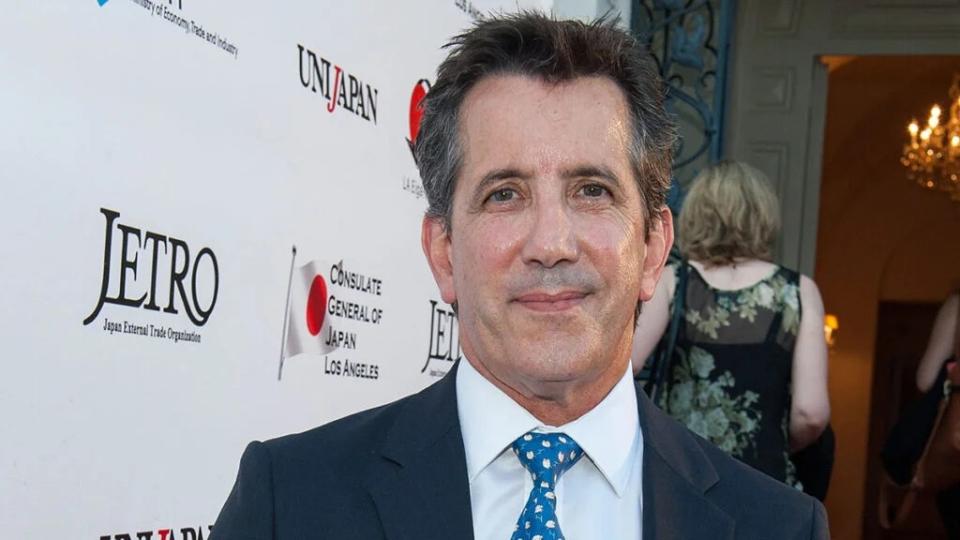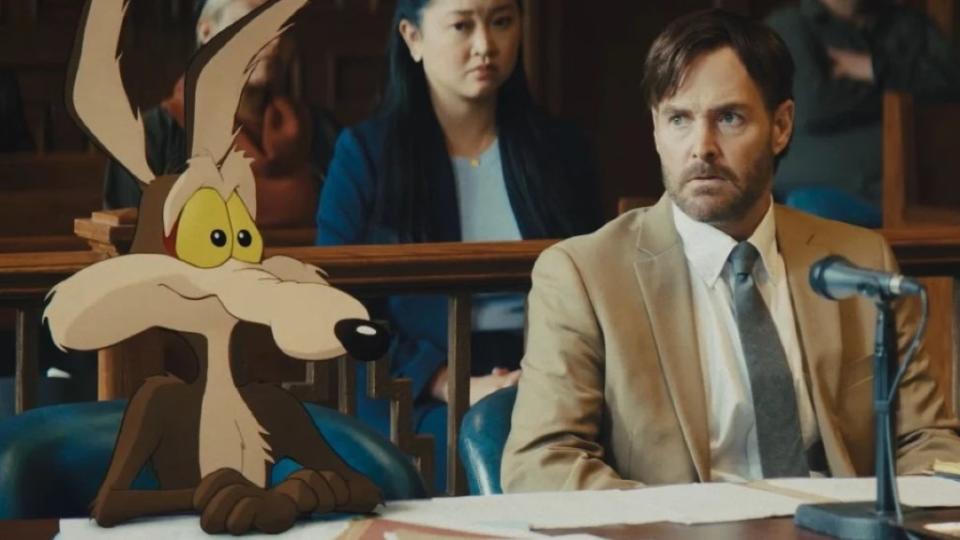The Final Days of ‘Coyote vs. Acme’: Offers, Rejections and a Roadrunner Race Against Time | Exclusive
In early January, “Coyote vs. Acme” producer Chris DeFaria got a startling phone call from a Warner Bros. executive. “They just want to get this behind them,” the executive told DeFaria. “They want to close the books.”
In the words of the Roadrunner: Meep.
The movie, a live-action/animated hybrid that stars Will Forte and the “Looney Tunes” gang, had been earmarked for demolition on Nov. 9. But following the announcement that the movie would be canceled, a firestorm of outrage and indignation erupted. It was heightened by a friends-and-family screening that had already been planned before the cancellation announcement was made. The screening brought more goodwill and an even louder public outcry.
“What was so exciting was that it felt like the film captured the voice of the Looney Tunes that we love in a way none of the other feature versions have ever done,” Paul Scheer, who was at that screening, told TheWrap. (The last movie to feature the characters, 2021’s “Space Jam: A New Legacy,” was pilloried by critics and lost money.)
Warner Bros., reacting to the hubbub, walked back its initial decision. Instead of canceling the movie outright, the studio would give the filmmakers the chance to shop it around. If another studio wanted to pick it up, they could.
Now, months later, Warner Bros. had had enough. The call to DeFaria made that crystal clear.
With Warner Bros. Discovery’s fourth quarter earnings call scheduled for Feb. 23, “Coyote vs. Acme” is running out of time. Many on the film’s team feel that the studio will use the ending of the quarter to get the movie off the books for good. “Coyote vs. Acme” is running up against something worse than a tunnel painted into the side of a mountain or a falling anvil. It will finally be silenced by a movie studio’s balance sheet.
In a truly inglorious end, a source close to the movie doesn’t believe Warner Bros. would even announce that they hadn’t found a home for the movie. They would unceremoniously delete it. Never to be seen again.

Offers and rejections
Following the death and potential resurrection of “Coyote vs. Acme,” there were screenings for interested parties. According to several people familiar with the situation, Netflix, Amazon and Paramount screened the movie (which was received well) and submitted handsome offers. Paramount even proposed a theatrical release component to their acquisition of “Coyote vs. Acme” that would allow for Warner Bros. to save face and, more importantly, let audiences see the movie the way it was meant to be experienced.
Warner Bros. did not respond to requests for comment from TheWrap.
But Warner Bros., which stood to make $35 – $40 million on the tax write-down, wanted something in the ballpark of $75 – $80 million from a buyer. And what’s more, they wouldn’t allow the interested studios to counter Warner Bros.’ offer. It was a “take it or leave it” situation, one that the other studios didn’t even know they were entering into, insiders told TheWrap.
Information about the potential sale of the project got to Eric Bauza, an actor who provided the voice for several characters in the film. In late December he felt so optimistic that he shared a photo from the movie (of Forte and the Coyote, see below) on social media and said: “See ya in 2024!”
Behind the scenes, though, the noose around the movie’s neck was tightening.

Executives skipped the screening
What made the situation even more appalling is that, according to a source close to the project, the four Warner Bros. executives responsible for making this decision – CEOs and co-chairpersons of Warner Bros. Motion Picture Group Michael De Luca and Pam Abdy, along with Warner Bros. Pictures Animation president Bill Damaschke and embattled CEO and president of Warner Bros. Discovery David Zaslav – hadn’t even seen the finished version of the movie.
Zaslav never saw the movie at all. De Luca and Abdy saw a “director’s cut,” and Damaschke saw the first audience preview. Significantly, “Coyote vs. Acme” was developed and greenlit by a previous regime; the only executive that worked on the movie that is still at the company is Jesse Ehrman. These executives, who trumpet a filmmaker-first approach and have recently signed big deals with directors like Ryan Coogler and Paul Thomas Anderson (who conspicuously made their deals after the filmmaker-led backlash to Warner Bros. had subsided), were apparently prepared to trash a movie that they’d never even watched.
Even so, the reason for “Coyote vs. Acme’s” cancellation remains damnably unknowable – even to those who made the movie. Publicly, Warner Bros. blamed the decision on a shifting “global strategy to focus on theatrical releases” and initially indicated it would take a tax write-off on the film, which is based on a New Yorker article by Ian Frazier from 1990. The problem, it seemed, was the movie was not strong enough for a theatrical release, and didn’t fit anyone’s streaming strategy in the WBD universe.
But there was a precedent. When Warner Bros. announced that “Batgirl,” a $90 million superhero movie based on a beloved DC Comics property, would be deleted from existence, a new avenue opened up for the studio. According to a source close to “Coyote vs. Acme,” getting rid of a wholly finished movie became “an acceptable means of dealing with a problem.”
When they weren’t sure what to do with “Coyote vs. Acme” — which originally had a release date later claimed by “Barbie” — the option to simply disappear it was taken, at least for a few days.
What makes the situation with “Coyote vs. Acme” more baffling is that unlike “Batgirl,” the film consistently received great scores from test audiences. Several Warner Bros. executives have gone out of their way to claim that “Batgirl” was un-releasable; that simply wasn’t the case with “Coyote vs. Acme.”
But Warner Bros.’ proclamation that the filmmakers could take it elsewhere was dubious at best. Back when the announcement was made that the movie wasn’t totally dead, a source close to the production remembered thinking, Maybe they’ll try to run out the clock.
Throughout the process, Warner Bros. refused to share specific details with the filmmakers about the proposed deals (and Warner Bros.’ rejection of those deals). Everything was captured through a hazy fog of secondhand phone calls and conversations. There were champions of the project, for sure, but they couldn’t force Warner Bros. to properly communicate with the filmmakers.
Intent to not only offload “Coyote vs. Acme” but to make a profit while doing so, the studio insisted on a price tag that would cover “negative cost plus” — what the movie cost the studio and additional fees that Warner Bros. had incurred.
“They made a short-sighted choice based on dismal third quarter projects,” said a source close to the movie. And reversing the decision to cancel “Coyote vs. Acme” was simply not possible.
Now, 90 days later, with the #SaveCoyoteVsAcme hashtag still present on social media, it feels like the end of the line for Coyote and all of his “Looney Tunes” friends. And barring a similar outpouring of support or without a big offer in the next few days, that-that-that’ll be all folks.
The post The Final Days of ‘Coyote vs. Acme’: Offers, Rejections and a Roadrunner Race Against Time | Exclusive appeared first on TheWrap.


